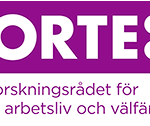The other week we received the great news that we were one of the projects that was awarded funding from Forte, one of the research councils in Sweden. In the three-year project Markus, Oscar, Ola, Linda and Robert (the new doctoral student) will research the transformation of the Swedish police. Please find a summary of the project below.

The project plans to investigate how law enforcement- and civilian personnel within the Swedish police create and give meaning to the on-going transformation of the Swedish police. The change that occurs represents one of the largest adjustments of a government agency in Sweden and thus has extensive economical-, organizational- and geographical consequences in a function with pronounced societal importance. Theoretically, our project aims to develop sensemaking/-giving literature focusing on how an integrated view of time and space – timespace – affects practice. Focus on timespace represents a new area within both sensemaking/-giving literature and the practice literature and therefore has significant potential. In addition, the project provides a theorization of modern police work that in contrast to previous studies focus on how police practice is established by both civilian and law enforcement personnel. In terms of methodology, the project contributes to the refinement of the practice approach through the development of methods to study the motivation for action as a result of being present in a certain timespace. The methods that will be used include ethnography, interviews and document studies where we follow the function of direct police leaders in the Northern Region. In a pre-study, tensions in the reorganization concerning these direct leaders were identified. The project aims to follow these tensions through the implementation of the new organization and study the consequences for both police and civilian personnel. Our study contributes to society by highlighting and developing modern policing where all staff groups is significant. Furthermore, we build knowledge of how sensemaking/-giving of police professionalism is changing and the skills requirements (among all staff) that surrounds the “new police” with that. Ultimately this is important for all government agencies experiencing organizational change, but in particular those that handle large geographical distances.